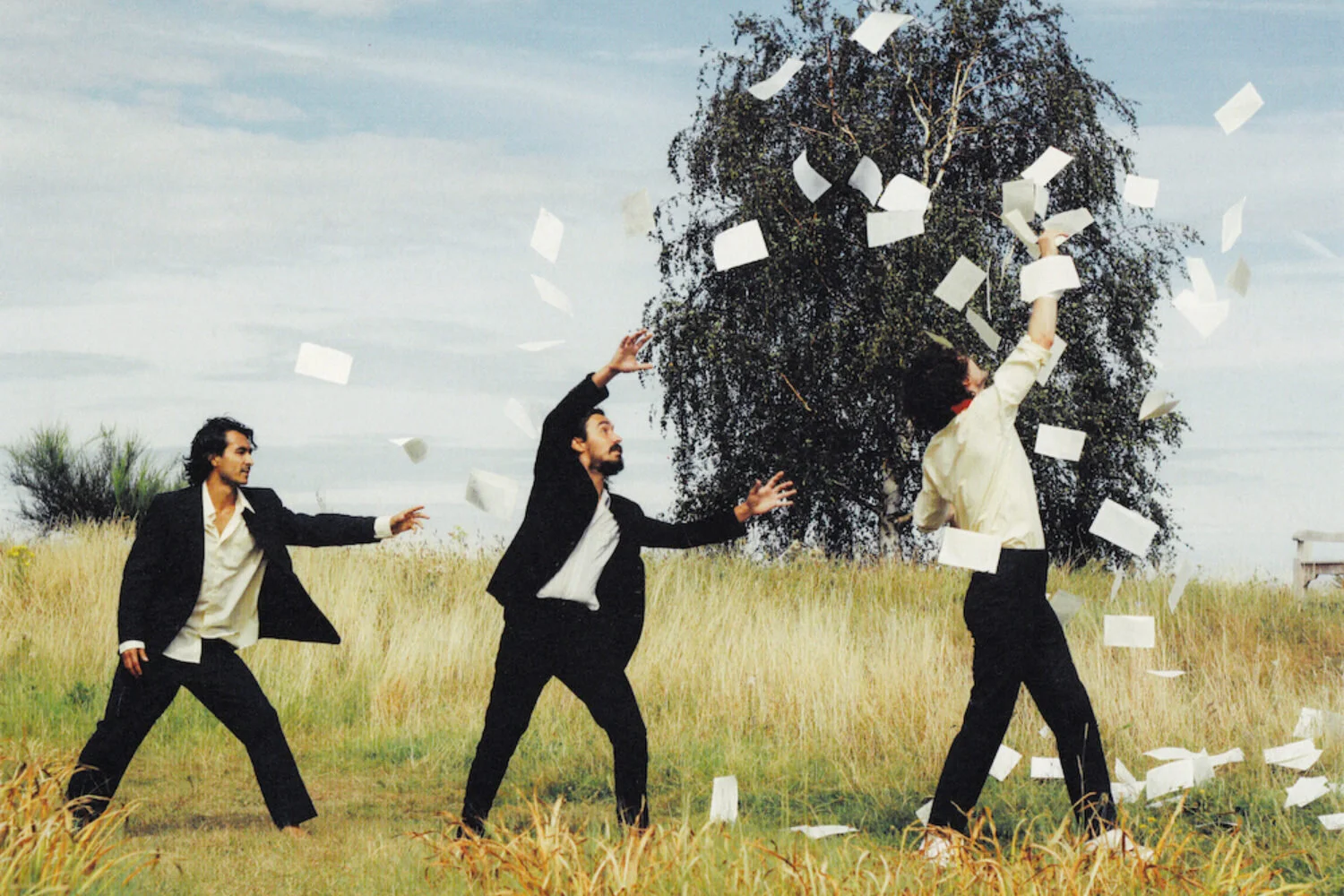Flyte | “Everyone’s A Winner” from 'This Is Really Going to Hurt'
by Gregg LaGambina
Directed by Jennifer McCord.
Back in April, Flyte released This Is Really Going to Hurt. The London trio’s 33-minute, 10-track suite of heartbreak and self-doubt seemed particularly timely, as many of us hunkered down yet again to endure another bout of homebound, candlelit solitude. The interlaced, pitch-perfect harmonies of singer-guitarist Will Taylor, bassist Nicolas Hill, and drummer Jon Supran were a gift to urban dwellers without a meadow or a backyard campfire to fight off the cabin fever. The songs themselves acting as open spaces in which to roam and explore our own pasts, as we waited impatiently for the future to resume.
Lauded by the likes of Elton John and the Charlatans’ Tim Burgess, whose popular pandemic listening parties featured both Flyte’s debut and This Is Really Going to Hurt, the band was poised, as many musicians were this past year, to traverse the globe until their meticulously made melodies soared to reach the scaffolds of every venue that would have them. Instead, they busked in open fields, on doorsteps, in alleyways, and in London’s abandoned Olympic Village for Flaunt. On the eve of their first European tour in support of their latest record, Will Taylor reflected on the year that wasn’t and his itching desire to return to the unpredictable excitement of normal.
This Is Really Going to Hurt is a breakup record. By writing music that explores a relationship after its demise, does it create a new relationship to that relationship? Does the breakup ever really end?
That’s a very good question. Everyone has the opportunity to take the histrionics into their own hands after a breakup. Everyone has to recreate the narrative for themselves, whether it’s for their own emotional survival or to make themselves look better. I did understand, very early on, the power that I could potentially wield [with this album]. I was at pains to make sure that the negativity I was exuding in the writing was pointing just as much at me as it was at some external place. In fact, I’d say, the majority of the negativity is directed inwards. It was a tough time writing this record, because it was something I wanted to move on from.
It was a big relationship that lasted close to a decade, so it was hard to heal from something so big that comes to an end. After a while, you’re just blowing upon a bruise and exacerbating it. You’re not making it easy to move on if you’re not only writing about it, working on it with the band, but recording, producing, and mixing it. I’m still being brought back to that place I was in, which is not a place I care to revisit, and it’s still happening because I’m still placing myself in it. As performers, we like to make sure we are emotionally engaged and connected with the material we’re performing. Every time I sing “Everyone’s A Winner,” I have to psychologically put myself in that place I was in when I wrote it. It’s an exorcism to a certain extent, but at the same time, it’s a painful place to return to.
There was a particular review of your record in a British magazine that I won’t name…
The NME?
Well, yes. The writer seemed to acknowledge that the music was wonderful, but the lyrics were mean. Not only did I think it was a misreading of the album’s spirit, but it was also entirely dismissive of the idea that anger is an allowable emotion after a breakup. I’m not sure I’ve ever read a review for anything that deducted “points” for honesty.
Yeah. I have a lot to say about that review. I’m glad to see that was your take on it. When the record came out, we had nearly unanimous positive reviews. I think when the NME sees mainstream media being nice about something, their traditional stance is to pick a reason to not like it. Whether you like the music we make or not, you can at least identify the fact that it’s an incredibly raw, honest, human expression. And, whether or not you think it was expressed well or not, at least it was honest. So, whoever the fuck it is that reviewed it, I don’t know what kind of trip they were on, but they saw someone who was being super honest about how they felt and said, “Oh, I don’t like the way that person felt.” Well, then what the fuck kind of perspective are you supposed to take on art in general? Is it just when people think and feel things in a fair and even way, then you’ll like it? You’re going to lose a gigantic swathe of art if that’s your fucking perspective.
Are you going to text me after this conversation and tell me that was off the record?
No, I don’t give a shit. I can sometimes admire their contrarian spirit, but they missed the point entirely.
Everyone appears to suddenly have songwriting partners they’ve all pulled from the same available barrel. Why does it seem as if less and less people write their own music, record it, and perform it live?
Because it’s bloody hard work. It’s human nature to try and reduce the difficulty of the work, but I think we’re just at the edge of that generation that’s stupid enough to try and write, produce, record, and perform their own music without any help.
It seems like an old-fashioned idea.
Yeah, to work really hard and try to make something really good, like a fucking mug.
You were gracious enough to perform “Everyone’s A Winner” for Flaunt. Where was it recorded? It’s a bit reminiscent of the Elliott Smith mural in Los Angeles.
It was filmed in the dregs of East London, in Olympic Village. It’s where the Olympics were once held, in 2012, and now it’s sort of an empty shell. But, you know, some good came of it. There is this beautiful empty tunnel—which, you’re right, it closely resembles the Elliott Smith album cover [for Figure 8]. It was just a place with nice acoustics and a good place to sing, so we just went along with it. We put it in black-and-white to try and obfuscate the derivativeness of the mural, but it clearly didn’t work. [Laughs]
During the past year, with your tour on hold, you took to people’s doorsteps and performed throughout London, outside. What was that like and how are you feeling about performing these new songs to paying crowds, nearly six months after the album was released?
It’s fundamentally terrifying. But there’s something about playing to someone at their doorstep that is innately more awkward and nerve-wracking than getting on a stage and doing an actual show. I think we’ve enjoyed very much playing to oddly assembled crowds in strange situations for sheer novelty value, but we’re fairly desperate to get back to the normal way of things.
Find tickets for Flyte’s upcoming UK tour here.

